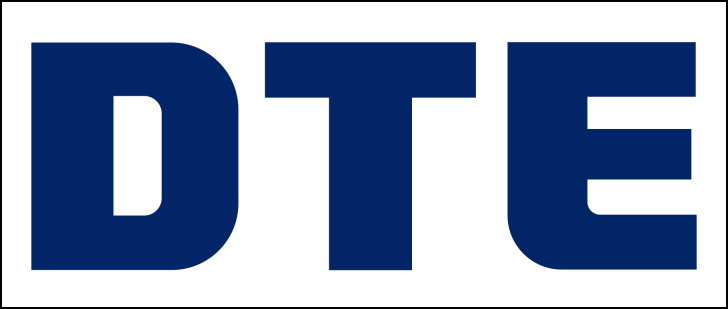NGI The Weekly Gas Market Report | NGI All News Access | NGI Archives
DTE Sees Shoots of Growth for Natural Gas and Weathering Coronavirus Impacts
Even as DTE Energy is implementing cost-cutting measures to help navigate the economic downturn brought on by the coronavirus, the natural gas storage and pipelines (GSP) assets in the Lower 48 are creating a path for long-term success.

“Our assets are well positioned and are supported by strong contracts, and our producers are drilling according to their original schedules,” CEO Jerry Norcia told investors Tuesday on a first quarter earnings call.
The GSP business is beating guidance year to date, with targeted earnings of $665-703 million for 2020, Norcia said. The company chief said the fixed fees outlined in contracts are supported by 85% hedges by most of the producer customers at around $2.75/MMBtu for 2020. “A big percent” of producers are hedged in 2021 at $2.65.
DTE management also is “encouraged” by strengthening gas prices forecast for 2020, 2021 and 2022. “Eighty-five percent of the company’s gas storage and pipelines segment revenue is covered by fixed revenue contracts and flowing gas over a three-year period,” Norcia said.
However, DTE is continuing due diligence and reviewing producer credit metrics, modeling liquidity and ensuring they are playing their bills, he said.
[Want to see more earnings? See the full list of NGI’s 1Q2020 earnings season coverage.]
Meanwhile, the company is eyeing a third quarter startup for the Leap natural gas gathering pipeline in the Haynesville Shale in northwestern Louisiana. Longer term, gas supply and demand fundamentals “remain attractive,” Norcia said. The supply correction for natural gas has started with reduced drilling activity, “especially in the oil basins with associated gas” and future supply is expected to come from “areas where our assets are located, including the Northeast and Gulf Coast.”
Nevertheless, “supply will be pressured to remain flat.” However, given the decline profiles of flowing wells, Norcia estimated that “19 Bcf/d of new production is needed just to keep supply flat.” That said, DTE is focused on “organic growth and value creation from these and our other well-positioned platforms.”
First quarter earnings for the GSP segment increased by $24 million year/year to $72 million. For the year, GSP profits are estimated at $277-293 million.
Despite the success of the GSP business, DTE is pulling the trigger on a slew of one-time cost-cutting measures to achieve earnings guidance amid the economic downturn.
In sticking to guidance of $6.47-6.75/share, Norcia said DTE is aiming to slash $2.5 billion in operations and maintenance spending. This includes pausing new hires, minimizing overtime, reducing contract and consulting spend, deferring banked maintenance work, decreasing travel, fast forwarding automation and work from home projects, and reducing materials and support expenses.
“We have spent a lot of time over the last few weeks understanding the potential financial impacts of the pandemic, building and implementing a plan for reacting to these challenges,” Norcia said. “This is a conservative plan.”
The measures are part of efforts to build a contingency of around $120-130 million to make up for a projected $60 million hit to 2020 earnings as well as potential further delays in returning to work and unfavorable weather. DTE is targeting earnings of $1.25-1.3 billion for 2020 and a 7% dividend increase this year and in 2021.
“We’ve faced recessionary pressures before in 2008 and 2009. We came through that stronger than ever, achieved operating EPS and cost reduction targets and exceeded cash from operations guidance. We are facing similar pressures. I’m confident that we have built a robust plan to respond to these challenges,” he said.
DTE has taken additional measures to further strengthen its liquidity position. The company issued $1.7 billion of long-term debt at its electric utility business, and has secured bank term loans for additional liquidity, which “significantly mitigates commercial paper and capital markets risk,” management said.
Construction and maintenance activities are set to resume in early May for the Detroit-based operator following state-level plans for restarting Michigan’s economy in the wake of the coronavirus pandemic. The company plans to slowly ramp up construction activities throughout May, although office employees are expected to remain at home into the summer as management determines when it is safe to return, Norcia said.
DTE is assuming a slow start scenario that would see the state’s industrial sector resuming in late summer, nonessential offices closed through year-end and schools/universities operating virtually through year-end. The slow start scenario also assumes a staggered restart of nonessential retail, restaurants and lodging throughout the summer.
Amid stay-at-home mandates, DTE has seen its residential/commercial loads increase by around 10% in April, while commercial loads have declined by around 17% and industrial loads have fallen by up to 46%.
“We believe we have seen the bottom for our loads at this point,” Norcia said.
DTE reported first quarter earnings of $340 million ($1.76/share), down from $401 million ($2.19) in 1Q2019.
© 2024 Natural Gas Intelligence. All rights reserved.
ISSN © 1532-1231 | ISSN © 2577-9877 | ISSN © 1532-1266 |
